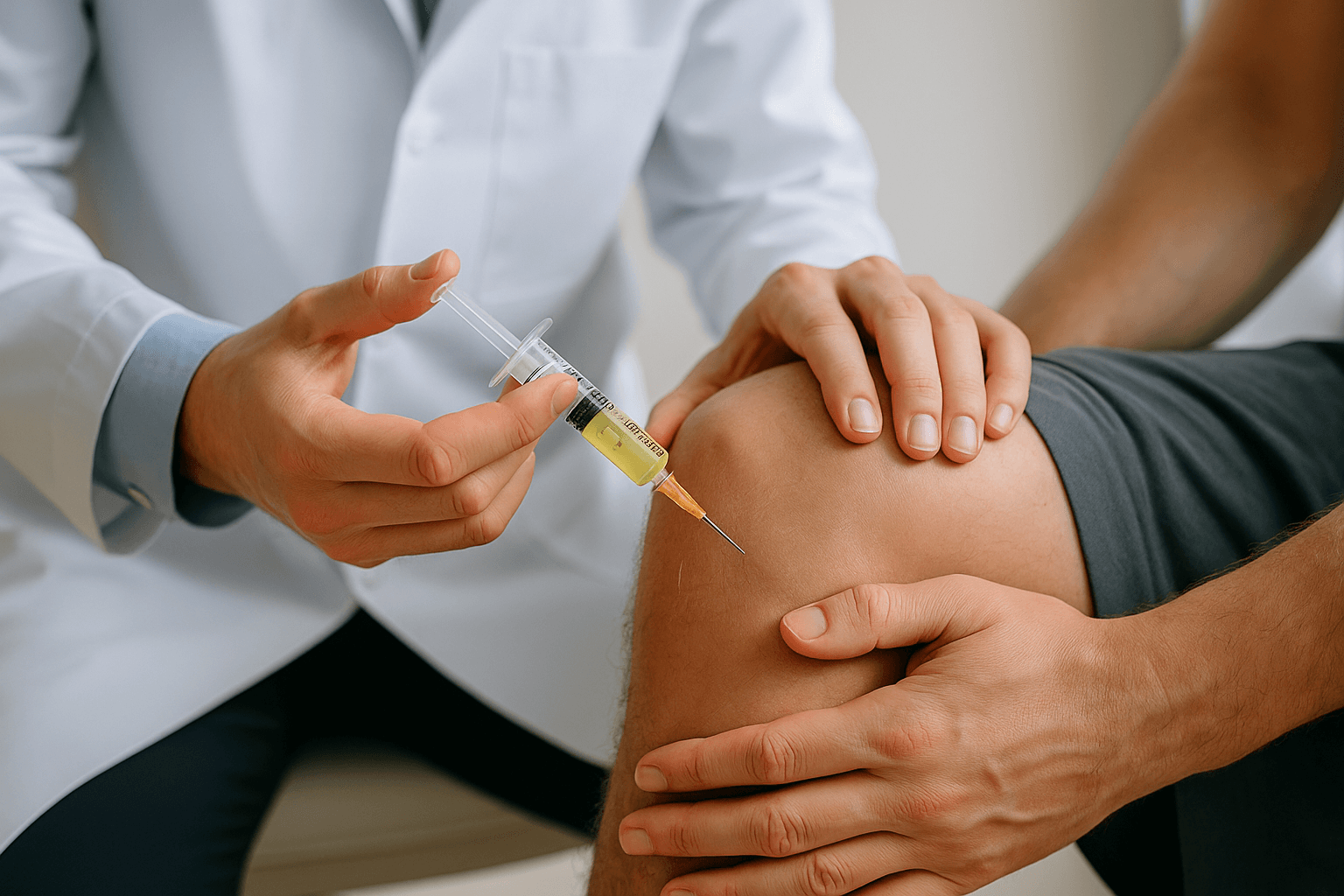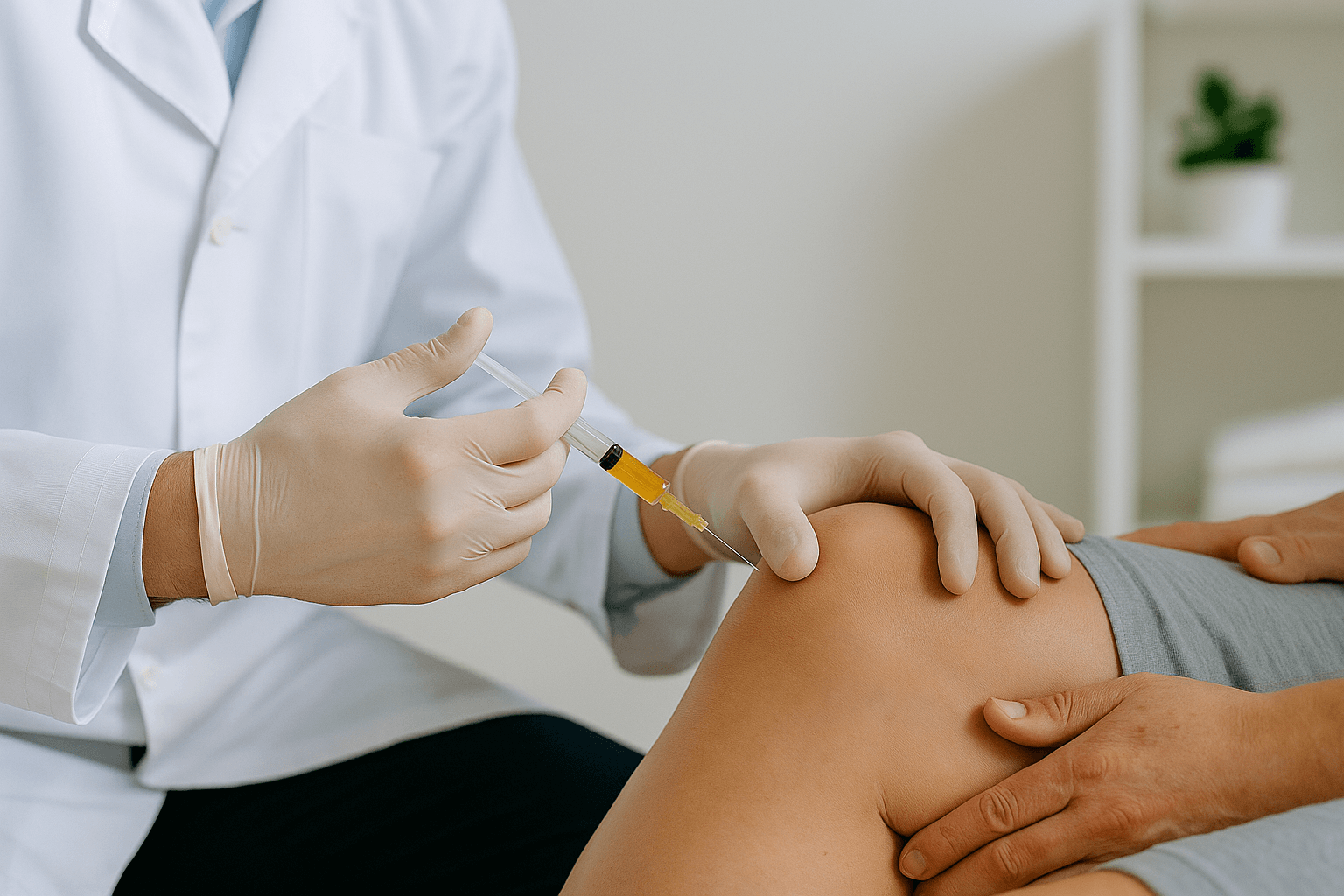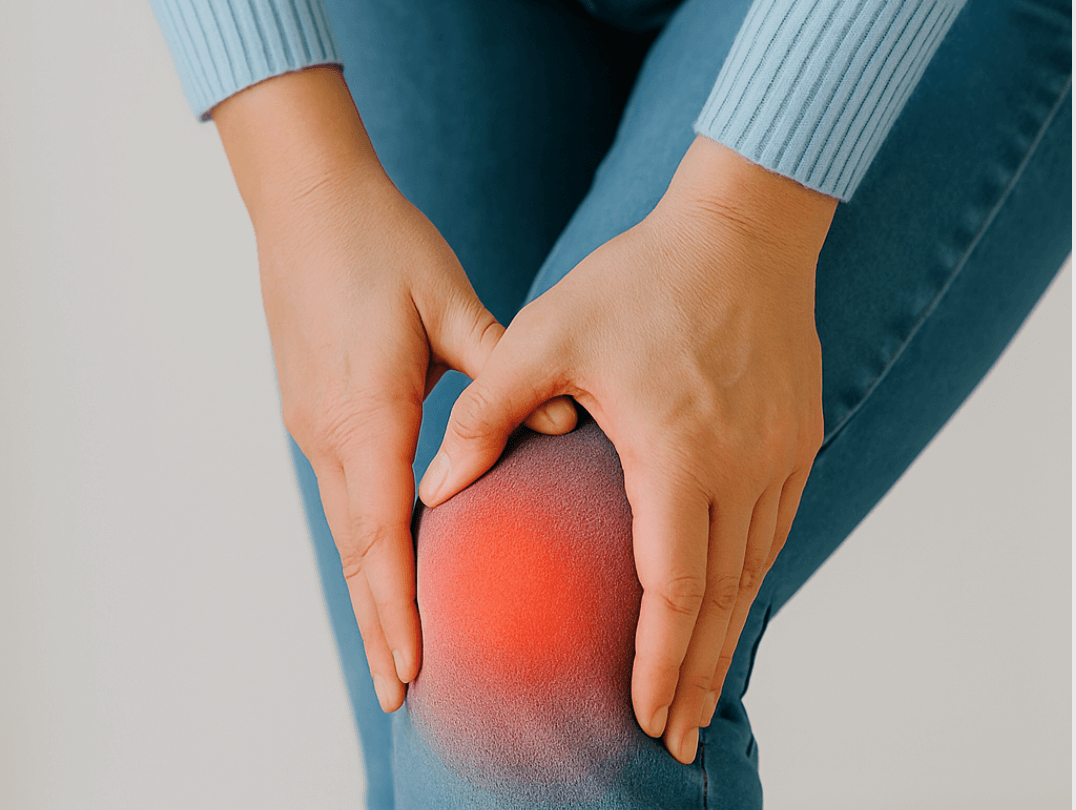
- Aug 17, 2025
- By TJICLondon
Cortisone Injections: Cost, Benefits, and What to Expect
Joint pain and inflammation can affect anyone, from athletes to office workers to retirees. When painkillers, exercise, or rest aren’t enough, many doctors recommend cortisone injections as a safe and effective way to reduce pain. If you’re wondering about the cost of a cortisone injection, how long it lasts, or even whether the procedure hurts, this guide will walk you through everything you need to know.
What Is a Cortisone Injection?
A cortisone injection (sometimes called a cortisone shot) is a treatment where a corticosteroid medicine is injected directly into or around a joint. The aim is to reduce inflammation, calm irritation, and relieve pain.
Cortisone injections are commonly given for:
-
Knee osteoarthritis
-
Shoulder pain, including frozen shoulder and rotator cuff issues
-
Hip arthritis and bursitis
-
Elbow problems like tennis elbow
-
Plantar fasciitis (heel pain)
-
Wrist and hand conditions such as trigger finger and carpal tunnel syndrome
By delivering the medicine directly to the source of pain, injections often work more quickly and effectively than tablets.
How Much Does a Cortisone Injection Cost?
One of the most common questions patients ask is: “What does a cortisone injection cost?”
In the UK, prices vary depending on the clinic, location, and whether the procedure includes extras such as ultrasound guidance or consultation. On average:
-
Private clinics: The cost of a cortisone injection usually starts at around £250–£500 per joint.
-
Specialist centres: Clinics that include ultrasound imaging for precision may charge more, but this often leads to better accuracy and results.
-
Hospital settings: Some hospitals charge over £1,000 per injection, particularly in central London.
For comparison, the cost of knee gel injections (hyaluronic acid treatments) is usually higher, often £400–£800 per injection, depending on the brand used.
If you’re considering this treatment, it’s worth asking your clinic for a clear breakdown of the fee.
Cortisone Injection for the Shoulder
Shoulder pain is one of the most common reasons people seek injections. Whether it’s frozen shoulder, bursitis, or rotator cuff inflammation, a cortisone injection in the shoulder can bring significant relief.
The procedure is often done with ultrasound guidance to ensure the medicine reaches the right spot. Many patients report improvement within days, allowing them to start physiotherapy or simply return to daily activities without pain.
Does a Cortisone Injection Hurt?
Understandably, many people are nervous before their first injection and ask: “Do steroid injections hurt?”
Here’s what most patients experience:
-
The skin is cleaned and sometimes numbed with local anaesthetic.
-
You may feel a quick pinch when the needle goes in.
-
The injection itself is usually described as pressure or mild discomfort rather than sharp pain.
-
The whole procedure is typically over in less than a minute.
Afterward, the area can feel sore for a day or two — sometimes called a post-injection flare. This is temporary and usually settles quickly with ice packs or simple pain relief.
Do You Need to Rest After a Cortisone Injection?
Another frequent question is: “Do I need to rest after a cortisone injection?”
Most doctors recommend:
-
24–48 hours of relative rest after the injection (avoid strenuous exercise or heavy lifting).
-
Normal gentle activities — walking, light daily tasks — are usually fine.
-
Avoid high-impact sports or gym workouts until your doctor advises.
This short rest period helps the medicine settle into the joint and reduces the risk of irritation.
How Long Does a Cortisone Injection Take to Work?
Cortisone doesn’t always work instantly. Many people ask: “How long does it take a cortisone injection to work?”
-
You may feel immediate relief for a few hours thanks to the local anaesthetic given during the procedure.
-
Once this wears off, the joint may feel sore again for a day or two.
-
The steroid medicine itself usually starts working within 3–5 days, with maximum benefit felt after 1–2 weeks.
So if you don’t feel better immediately, don’t worry — improvement often builds gradually.
How Long Does a Cortisone Injection Last?
Relief from a cortisone injection can vary:
-
Short-term: Some people notice benefits for a few weeks.
-
Typical duration: For most, pain relief lasts 2–3 months.
-
Longer relief: In some cases, especially with mild arthritis or bursitis, results can last up to 6 months.
It’s important to note that cortisone isn’t a cure — it reduces inflammation but doesn’t reverse underlying wear and tear. Still, for many, it provides a much-needed window of relief to continue physiotherapy or stay active.
When to Consider a Cortisone Injection
You might consider an injection if:
-
Pain is interfering with work, exercise, or sleep.
-
Rest, medication, and physiotherapy haven’t provided enough relief.
-
You want to avoid or delay surgery.
Cortisone injections are generally safe, but they aren’t suitable for everyone. Your doctor will discuss your medical history, allergies, and other treatments before recommending one.
Final Thoughts
Cortisone injections are a trusted, widely used treatment for joint pain. They can be particularly effective for knees, shoulders, hips, and elbows.
If you’re thinking about treatment, remember:
-
The cost of cortisone injections can vary, so it’s worth comparing clinics.
-
The procedure is usually quick and only mildly uncomfortable.
-
Relief often begins within a few days and can last for months.
If joint pain is affecting your daily life, don’t wait. Explore your options for cortisone injections near you and speak with a specialist about whether this treatment is right for you.
Learn more about elbow and joint pain treatment in London and how injections could help you return to a pain-free lifestyle.









